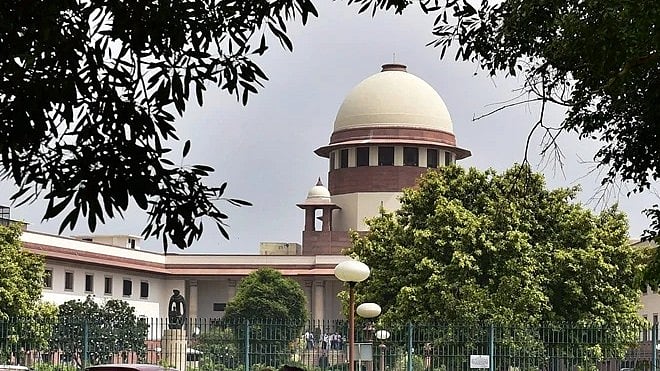SC’s Recall Of Vanashakti Order Undermines India’s Environmental Jurisprudence And Weakens Precautionary Principle
In a deeply disappointing interpretation of environmental regulations, the Supreme Court has recalled its earlier order in the Vanashakti vs Union of India case requiring project proponents to obtain prior environmental clearance (EC), a legal guardrail instituted to prevent irreversible harm to nature.

SC’s Recall Of Vanashakti Order Undermines India’s Environmental Jurisprudence And Weakens Precautionary Principle | File Photo
In a deeply disappointing interpretation of environmental regulations, the Supreme Court has recalled its earlier order in the Vanashakti vs Union of India case requiring project proponents to obtain prior environmental clearance (EC), a legal guardrail instituted to prevent irreversible harm to nature.
Two judges out of three on the bench, including outgoing Chief Justice of India BR Gavai, viewed the judicial prohibition on the grant of environmental clearance after a project was put up as unsustainable. The CJI referred to monetary loss to those who had put up the constructions, since they would have to demolish them.
Demolition, he added, would also cause pollution. Moreover, if the same projects were found eligible later, the proponents would have to make fresh investments. Justice K. Vinod Chandran concurred with the CJI on the need for a review.
The crux of the issue, however, can be found in the dissent of Justice Ujjal Bhuyan, who pointed out that the court could not backtrack on the mature environmental jurisprudence that had evolved over time, that too at the instance of violators.
The challenge to the Vanashakti order of May, which struck down circulars facilitating ex post facto EC, came from a confederation of real estate promoters. Ironically, just days before the court annulled an important order for environmental protection, Justice N. Kotiswar Singh of the same court told the ongoing UN conference on climate change in Brazil that India’s judiciary treated nature as deserving of intrinsic protection, as opposed to its earlier view of it as a resource to benefit humans.
Crucially, while the recall of the Vanashakti order laid low the precautionary principle and inter-generational equity, it selectively applied the polluter pays principle, whereby governments, regardless of conflict of interest, assign a commercial value to nature.
India already brings up the rear on environmental protection, ranking 176 among 180 countries on the Environmental Performance Index 2024, a multi-metric assessment of green credentials by Yale and Columbia universities.
The marginal improvement made since 2022, when India was at rock bottom on the EPI, now stands threatened with the recall of the Vanashakti order. On another measure, there has been a steep fall of 13 ranks in one year in the Climate Change Performance Index put out by an independent monitor at the climate conference.
India’s hazardous air, starting with the national capital, is a widely acknowledged disaster; hill towns are overrun by a lack of strong building rules. The EC scheme is, therefore, fundamental to the health of Indians, and notifications are consistent with the Environment (Protection) Act.
The apex court could have addressed only specific, deserving cases seeking relief, removing any precedent-setting value and without recalling the entire Vanashakti order.
Justice Kotiswar Singh’s emphasis at the UN meeting on the need to internalise the full environmental cost of projects lays out the sustainable path. The scheme of prior EC intends to achieve just that, but it stands hobbled now.
Published on: Friday, November 21, 2025, 06:58 AM ISTRECENT STORIES
-
-
-
-
-